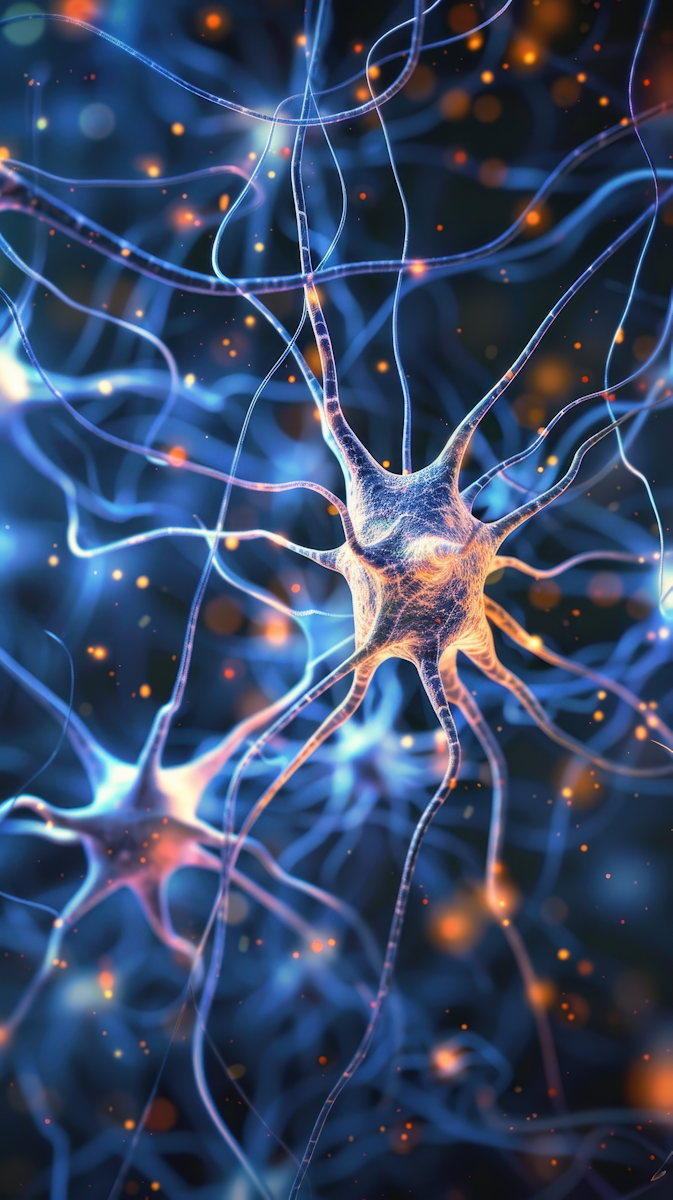Understanding the Connection Between Oxygen, Energy Production, and Optimal Health
Imagine if your phone battery could only hold 30% of its original charge. You'd notice the effects immediately – shortened usage time, slower performance, and constant need for recharging. This analogy perfectly describes what happens when mitochondrial dysfunction affects your cells. These tiny cellular powerhouses become like depleted batteries, unable to provide the energy your body needs to function optimally.
What Are Mitochondria and Why Do They Matter?
Mitochondria are often called the "powerhouses of the cell," but this simple description doesn't capture their true importance. These microscopic organelles are responsible for producing ATP (adenosine triphosphate), the molecular currency that powers virtually every process in your body – from muscle contractions and brain activity to cellular repair and immune responses.
Each cell in your body contains hundreds to thousands of mitochondria, with energy-demanding organs like the heart, brain, and muscles containing the highest concentrations. A single heart cell, for example, may contain up to 5,000 mitochondria, reflecting the enormous energy requirements of cardiac muscle.
The Oxygen Connection: Mitochondria's Essential Fuel
Mitochondria operate like sophisticated biological engines, but instead of gasoline, they run on oxygen. Through a process called cellular respiration, mitochondria combine oxygen with glucose and other nutrients to produce ATP. This process is so efficient that it can generate up to 38 ATP molecules from a single glucose molecule – but only when adequate oxygen is available.
When oxygen levels drop, this cellular engine begins to sputter and fail. Without sufficient oxygen, mitochondria must resort to anaerobic metabolism, which produces far less ATP and generates harmful byproducts like lactic acid. It's like trying to run a high-performance engine on poor-quality fuel – performance suffers dramatically.
Signs Your Cellular Batteries Are Failing
Mitochondrial dysfunction manifests in numerous ways, often appearing as seemingly unrelated symptoms:
Energy and Fatigue Issues
- Chronic fatigue that doesn't improve with rest
- Energy crashes throughout the day
- Difficulty waking up despite adequate sleep
- Feeling tired after minimal physical activity
Cognitive Symptoms
- Brain fog and difficulty concentrating
- Memory problems
- Reduced mental clarity
- Difficulty making decisions
Physical Manifestations
- Muscle weakness and poor exercise tolerance
- Slow recovery from physical activity
- Joint pain and stiffness
- Digestive issues
- Temperature regulation problems
The Cellular Battery Analogy: Understanding Energy Depletion
Think of mitochondria as rechargeable batteries in your cells. Just like your phone battery, these cellular batteries can become depleted, damaged, or less efficient over time. Several factors contribute to this "battery drain":
Oxygen Deprivation
The most critical factor in mitochondrial dysfunction is inadequate oxygen supply. Research shows that when mitochondria are deprived of just 35% of their required oxygen for 48 hours, significant dysfunction begins. This oxygen deprivation can result from:
- Poor circulation
- Environmental toxins
- Chronic inflammation
- Sedentary lifestyle
- Respiratory problems
Oxidative Stress
Free radicals damage mitochondrial membranes and DNA, reducing their efficiency. It's like corrosion building up on battery terminals – the connection becomes poor, and energy transfer suffers.
Nutritional Deficiencies
Mitochondria require specific nutrients to function optimally, including CoQ10, magnesium, B-vitamins, and antioxidants. Deficiencies in these nutrients impair mitochondrial function.
The Cascade Effect of Mitochondrial Dysfunction
When mitochondria begin to fail, the effects cascade throughout the body. Energy-demanding organs are affected first and most severely:
Brain Impact
The brain consumes about 20% of the body's energy despite being only 2% of body weight. Mitochondrial dysfunction in brain cells contributes to cognitive decline, mood disorders, and neurodegenerative diseases.
Heart Consequences
Cardiac muscle cells are packed with mitochondria to meet the heart's constant energy demands. Mitochondrial dysfunction in heart tissue can lead to cardiac fatigue, arrhythmias, and heart failure.
Muscle Weakness
Skeletal muscles rely heavily on mitochondrial ATP production for contraction and endurance. Dysfunction leads to weakness, exercise intolerance, and poor recovery.
Age-Related Mitochondrial Decline
Mitochondrial dysfunction is closely linked to the aging process. As we age, several factors contribute to declining mitochondrial function:
- Accumulated damage: Years of oxidative stress take their toll
- Decreased biogenesis: The body produces fewer new mitochondria
- Reduced efficiency: Older mitochondria become less efficient at ATP production
- Impaired quality control: The cellular mechanisms that remove damaged mitochondria become less effective
This decline explains why energy levels typically decrease with age and why older adults are more susceptible to chronic diseases.
PATRIOX: Recharging Your Cellular Batteries
Traditional approaches to supporting mitochondrial health focus on nutrition, exercise, and antioxidants. While these are important, they don't address the fundamental issue: oxygen availability at the cellular level.
PATRIOX liquid oxygen water offers a direct solution by delivering bioavailable oxygen straight to mitochondria. This is like plugging a depleted phone directly into a charger – the recharging begins immediately and efficiently.
The PATRIOX Advantage
Unlike oxygen-infused water that quickly loses its oxygen content, PATRIOX maintains oxygen in a liquid form with a specific electrical signature (PO2) that allows it to:
- Cross cellular membranes easily
- Reach mitochondria within 30 seconds
- Provide immediate oxygen availability for ATP production
- Support optimal mitochondrial function
The Recharging Process: From Dysfunction to Optimization
When you provide mitochondria with optimal oxygen through PATRIOX, several positive changes occur:
Immediate Effects (0-30 seconds)
- Liquid oxygen reaches mitochondrial membranes
- Cellular respiration efficiency increases
- ATP production begins to optimize
Short-term Benefits (minutes to hours)
- Increased energy levels
- Improved mental clarity
- Enhanced cellular function
Long-term Improvements (days to weeks)
- Sustained energy levels
- Improved exercise tolerance
- Better recovery and healing
- Enhanced overall vitality
Beyond Energy: The Broader Health Impact
Optimizing mitochondrial function through proper oxygenation affects more than just energy levels. When cellular batteries are fully charged, the entire body functions better:
- Immune system strengthening: Immune cells require enormous energy to function effectively
- Detoxification improvement: Liver cells need ATP to process and eliminate toxins
- Cellular repair acceleration: DNA repair and cellular maintenance are energy-intensive processes
- Hormonal balance: Hormone production and regulation require optimal cellular energy
Taking Charge of Your Cellular Health
Understanding mitochondrial dysfunction is the first step toward reclaiming your energy and health. Just as you wouldn't accept a phone that only held 30% charge, you don't have to accept cellular batteries that can't power your body optimally.
PATRIOX liquid oxygen water provides the direct cellular recharging your mitochondria need to function at their peak. By addressing oxygen availability at the cellular level, PATRIOX helps restore the energy foundation that supports all aspects of health and vitality.
Your cellular batteries don't have to remain depleted. With the right oxygen support, they can be recharged, revitalized, and restored to optimal function.

